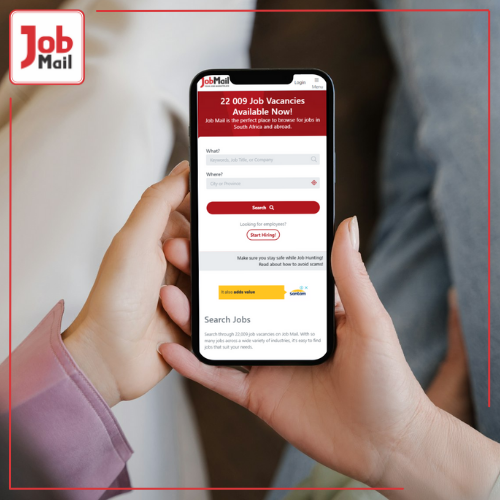Sell yourself as an accountant in South Africa. It's more than just crunching numbers; it's about showcasing your skills, expertise, and value to potential employers. In a competitive job market like ours, where qualified professionals vie for coveted positions, it's essential to stand out from the crowd. As an accounting professional, you possess unique talents and experiences that can set you apart, but effectively communicating these qualities is key. Let’s take a look at actionable strategies to help you market yourself effectively and secure the accounting job you want. When you’re done, visit the Job Mail blog to read through more helpful blog articles for job seekers. You will learn about crafting standout CVs and cover letters, as well as find interview questions and more.
 Photo by Pixabay on Pexel
Photo by Pixabay on Pexel
How can you sell yourself as an accountant in South Africa?
Let us take a look at the following steps you can take to draw attention while on the hunt for a new job.
1. Highlight Your Qualifications and Certifications
Start by prominently showcasing your academic qualifications and professional certifications on your resume and LinkedIn profile. Employers often prioritise candidates with recognised accounting qualifications such as CA (SA), ACCA, or CIMA. Highlighting these credentials demonstrates your commitment to excellence and can instantly grab the attention of hiring managers.
Read: Improve Your CV and Career Options by Upskilling Yourself
2. Emphasise Relevant Experience
Whether you're a seasoned accountant or a recent graduate, highlighting relevant experience is crucial. Detail your past roles, projects, and achievements, focusing on how your contributions added value to previous employers. Use quantifiable metrics whenever possible to showcase your impact, such as cost savings, revenue growth, or process improvements.
3. Demonstrate Technical Proficiency
Proficiency in accounting software and technology is essential. Make sure to highlight your proficiency with popular accounting software such as SAP, QuickBooks, or Sage. Additionally, be sure to feature any specialised skills or expertise you possess, such as forensic accounting, tax planning, or audit procedures, which can set you apart from other candidates.
4. Showcase Soft Skills
While technical skills are essential, don't overlook the importance of soft skills in accounting roles. Effective communication, problem-solving, and teamwork are highly valued by employers. Use examples from your past experiences to demonstrate how you've effectively collaborated with colleagues, resolved conflicts, or communicated complex financial information to stakeholders.
5. Network Strategically
Building professional relationships is critical in the accounting industry. Attend industry events, seminars, and networking functions to connect with fellow professionals, recruiters, and potential employers. Utilise online platforms to expand your network and engage with industry influencers. A strong professional network can provide valuable job leads and referrals.
6. Customise Your Application Materials
Tailor your resume and cover letter to each job application, highlighting the specific skills and experiences that align with the job requirements. Research the company and role thoroughly to understand their needs and objectives, then craft your application materials to demonstrate how you can fulfil those needs. Personalising your approach shows employers that you're genuinely interested in the position and willing to put in the effort to succeed.
7. Continuously Upskill and Adapt
The accounting profession is constantly evolving, with new regulations, technologies, and best practices emerging regularly. Stay ahead of the curve by investing in continuous learning and professional development. By demonstrating a commitment to lifelong learning, you'll show employers that you're adaptable and capable of thriving in a dynamic environment.
 Photo by RDNE Stock project on Pexels
Photo by RDNE Stock project on Pexels
Read: How Short-Term Courses Can Propel Your Career in South Africa
As we have highlighted the strategies to stand out as an accountant in South Africa, it's important to answer some of the most asked questions in this industry.
Frequently Asked Questions
1. How long does it take to become a qualified accountant in our country?
Becoming a qualified accountant typically takes around for to seven years, depending on the educational path chosen and the completion of required professional certifications.
2. Are there any specific accounting software skills that employers look for in South Africa?
Yes, proficiency in accounting software such as Sage, Pastel, and Xero is highly valued by employers in South Africa. Familiarity with these tools can greatly enhance your employability.
3. Is it necessary to have a bachelor's degree in accounting to become an accounting professional?
While a bachelor's degree in accounting is the most common path, it is not the only way to become an accountant. Alternative routes include completing a diploma in accounting or pursuing professional certifications alongside relevant work experience.
4. How important is continuing professional development for South African accountants?
Continuing professional development (CPD) is highly valued in the accounting profession in South Africa. It shows a commitment to staying updated with industry advancements and enhances career progression opportunities.
5. Can international accounting qualifications be recognised in South Africa?
Yes, there are processes in place to recognise international accounting qualifications in South Africa. Evaluating your credentials through the South African Qualifications Authority (SAQA) is recommended to determine the equivalence of your qualifications.
Read: 10 Common Interview Questions
To sell yourself as an accountant in South Africa, it's essential to adopt a strategic approach that highlights your unique qualifications, experiences, and skills. By emphasising your qualifications and proficiencies, you can position yourself as a top candidate in the competitive South African job market. Remember, effective self-marketing is not just about showcasing your abilities; it's about presenting yourself as the solution to an employer's needs. By following these strategies, you can elevate your profile and increase your chances of landing the accounting job of your dreams in South Africa. Visit Job Mail for more including how to write a cover letter, resume, and how to answer interview questions.



